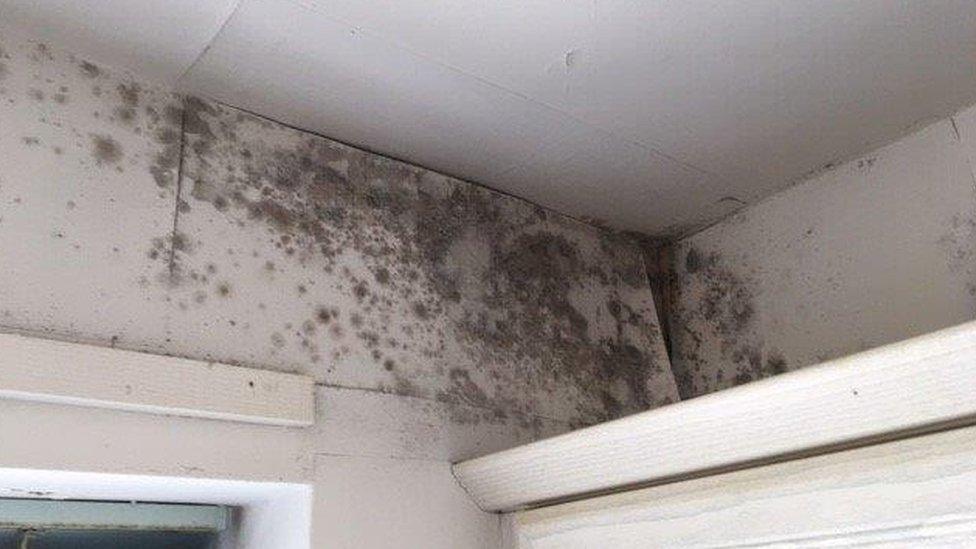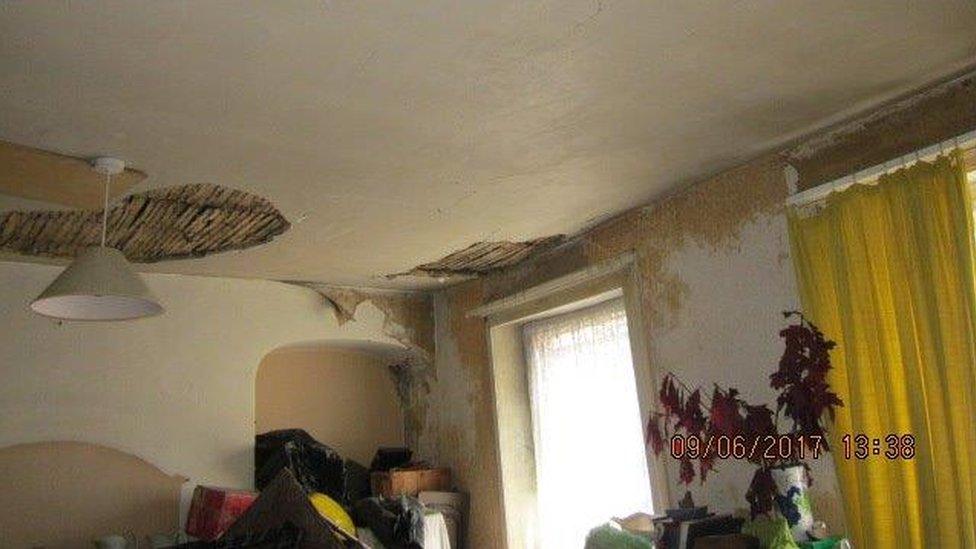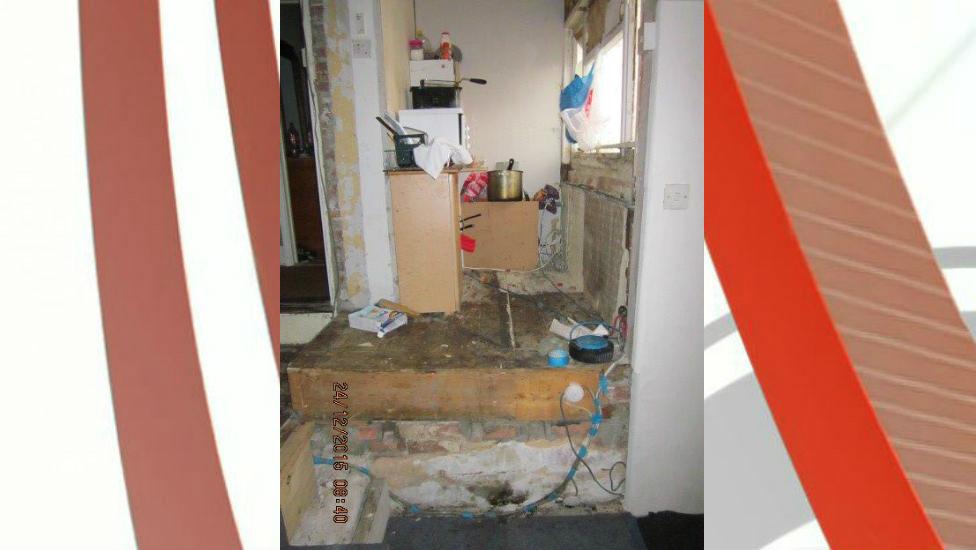Jersey proposes new laws to clamp down on landlords
- Published

Officers from the Department of the Environment said they see properties like this "every week" in Jersey
A new law to establish basic standards for housing in Jersey is being proposed.
The island's environment minister said it would ensure "sub-standard" accommodation "did not exist anymore".
Environmental Services have recorded examples of rental properties in serious disrepair with holes in ceilings and excessive mould.
Landlords could face criminal charges if they do not adhere to the standards set out in the proposals.
For more on the new property law and other stories from across the Channel Islands.

The department said they can currently only confront landlords if properties are not "wind and water tight" or there is a "danger of death"
Deputy Steve Luce said he wanted landlords to be "accredited" and their accommodation "scored" under the new law, external.
It is based on the UK Housing Act 2004, and is the second time a version of the law has been proposed to the States.
But some people with bad experiences of the housing market in Jersey say the law does not go far enough.
The island operates a two-tiered system, external in rented accommodation, with "qualified" residents able to access all properties, and "registered" residents having access to a smaller range.
People born in Jersey, resident for 10 years or essentially employed can rent "qualified" homes, anyone else must rent "registered" accommodation.


Kerry Leadbetter:
Ms Leadbetter became homeless in 2013 when she left the family home with her two children. Her husband held the family housing qualifications.
She slept in her car for six weeks until she found a bedsit in the middle of farmland, which she said was "covered in mould" and infested with cockroaches.
Ms Leadbetter welcomed a move to higher standards of accommodation but said the costs of rent would still be too high for many islanders, especially those who had just arrived.
"Landlords will just push the costs of repairs into the price of the rents, leaving the tenant further hard done by," she said.
"And it still won't make enough properties available on the market."
On her third attempt, Kerry was granted housing qualifications through hardship, allowing her to access more properties to rent in the island.

What the law proposes:
Put in place a "legal regime" for the regulation and maintenance of the standard of rented property in Jersey.
Set minimum standard across all of the "rented dwelling sector", including all qualified and registered properties.
Allow inspectors to enter properties to inspect them for hazards, where hazards have already been identified.
Introduce a scheme where the States can "license" properties, and charge for licences.
Makes the minister for the environment responsible for promoting health and safety in rented properties and allows officers to take action on his behalf.
Allows the minister to apply criminal or administrative penalties and sanctions to landlords if they do not enforce the set standards.
It is based on the UK's Housing Act 2004.


Officers said these kinds of properties were in the minority in Jersey, with most landlords being "very good"
In the latest projections, external from the States of Jersey on housing need, there is "a potential shortfall of almost 1,500 units".
Robert Weston, president of the Jersey Landlord's Association, said there was "very little evidence" of "any real need" for the new law.
"Jersey is a tiny community with health and safety laws that already protect islanders and tenants, very adequately - especially where a property is not wind and watertight." he said.
He added the offences landlords could be potentially fined for, the extent of the work the States could order, and the new minimum standards for accommodation, had not yet been defined in the law.
The law is due to be debated on 31 October in the States assembly.